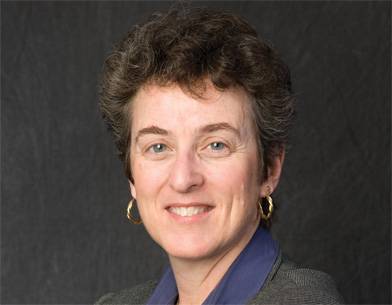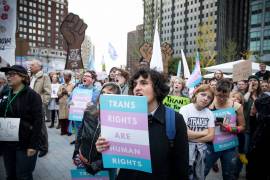
Ask Lambda Legal: Using Religion to Discriminate
Blog Search
Q: I live in Illinois and have been eagerly waiting to see if we become the next state to win marriage. I was reading about an issue with religious exemptions. Can you tell me what that means?
A: In addition to Illinois, Rhode Island and Hawaii are actively reviewing marriage bills, and Colorado is considering a civil union bill. As we work toward equality for same-sex relationships across the country, we are having to resist suggestions in some states that the bill language include new exemptions that would change the current state nondiscrimination laws.
The proposed exemptions are clauses in bills designed to allow religious organizations to discriminate against same-sex couples who are getting married or entering a civil union, or have done so. Religious belief and expression are already protected by our federal Constitution and every state constitution, so exemptions in bills are not necessary to protect the freedom of clergy and houses of worship to decide whose marriages they will solemnize. The problems arise when religious groups want exemptions that go beyond protecting the church door and extend into the public sphere of commercial transactions and social services.
We especially are watching out for proposals to exempt marriage “celebrations.” Marriage “celebrations” often means wedding receptions, not just solemnization ceremonies done in a church. So if a bill includes this language, a religiously affiliated agency that rents out space to people of all faiths and backgrounds for wedding receptions can deny gay and lesbian couples the chance to rent that space. This type of discrimination usually is unlawful under human rights laws like the one in Illinois, which says organizations that offer goods or services to the public for profit may not discriminate on a series of grounds including race, religion, national origin, marital status, disability, age, sex or sexual orientation.
Another type of religious exemption that can harm LGBT people allows a religious organization to not “recognize” a same-sex couple’s marriage. This is particularly alarming when we consider what can happen in religiously affiliated hospitals when visitation or decision-making depends on one’s legal status. Just imagine needing emergency care, being taken to the nearest hospital, and having your spouse kept from your bedside because the hospital refuses to respect your legal marriage.
A third example concerns social services. The government provides funding to many organizations that provide adoption services, addiction recovery, hunger relief, senior services, and help for those who are homeless. Usually, if an organization receives public funds to provide services like this, it cannot discriminate on various bases including sexual orientation. Allowing an exemption for religiously affiliated agencies could have broad implications, such as blocking children who need families from placement with eligible same-sex couples and putting those who need shelter at risk of rejection because they are gay.
It is exciting to see our allies in legislatures across the country standing up for the freedom to marry. We are working vigilantly with them to protect our core nondiscrimination policies in the process.
If you feel you have been discriminated against based on your sexual orientation, gender identity or HIV status please contact our Legal Help Desk.




